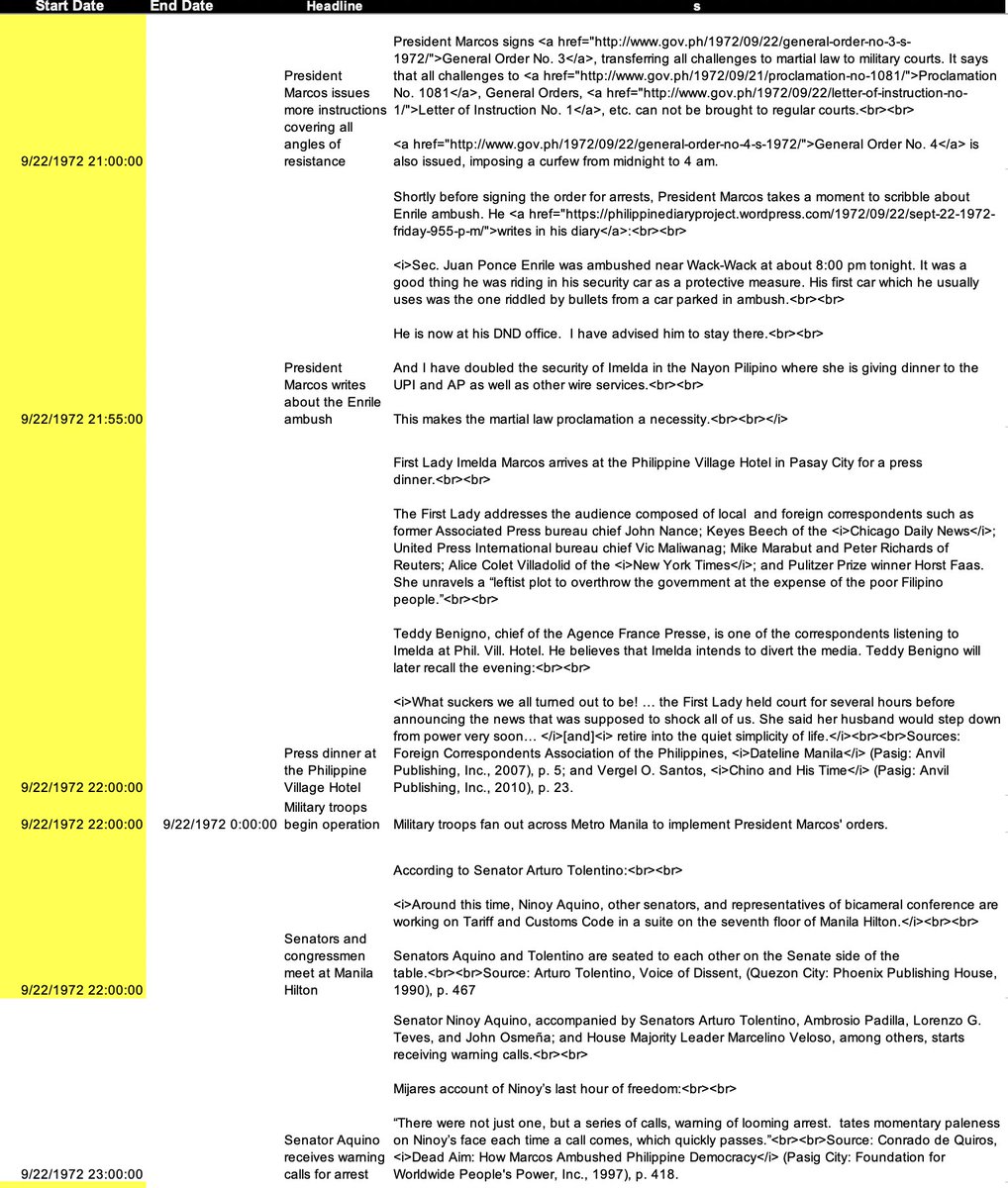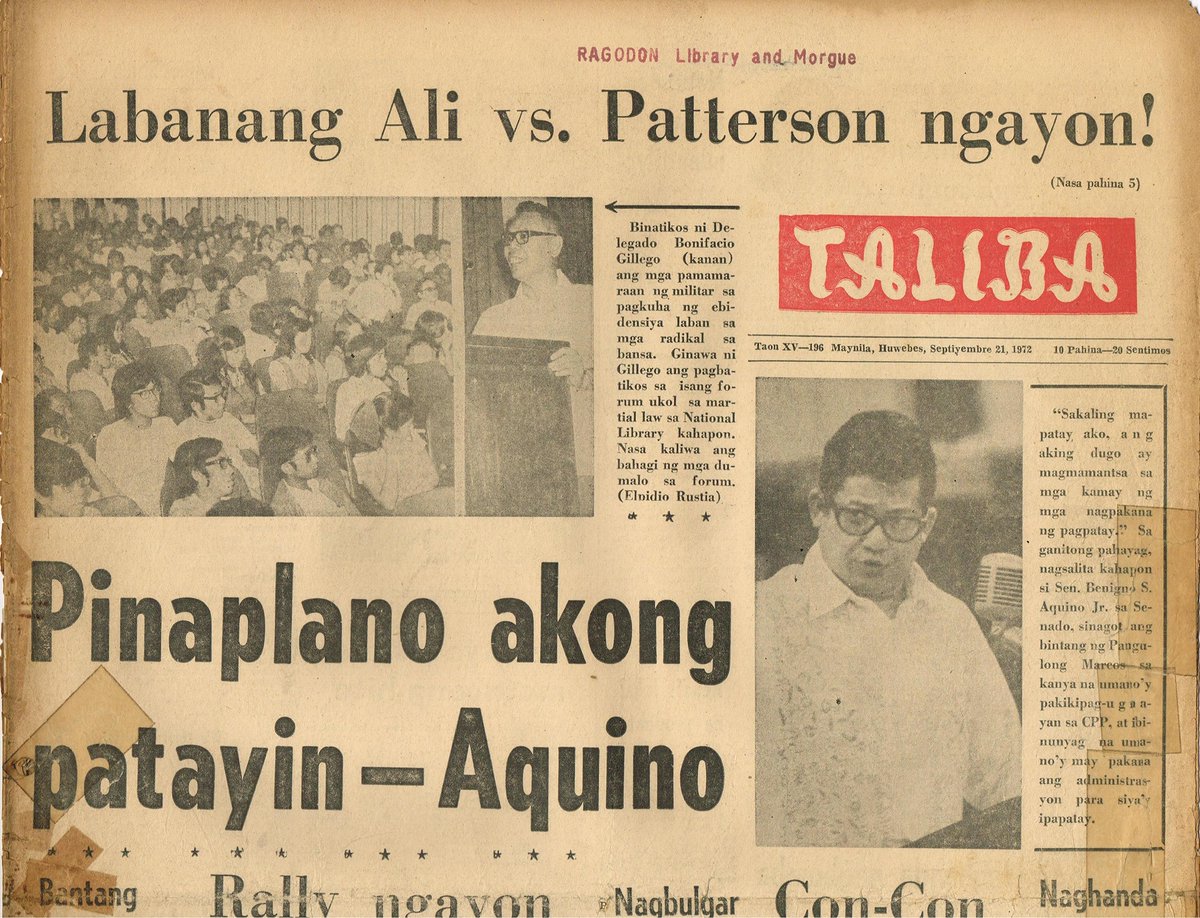
Looking ahead to September 23, the 49th anniversary of #MartialLaw a thread. 

Situating September 21 in real events (from The Historical Atlas of the Republic) archive.org/details/histor… 

You can go into detail not just about September, 1972, but 1969-1986 in this detailed timeline of martial law. philippinediaryproject.com/2021/08/27/a-t… (parts 1-4) 







You can go into detail not just about September, 1972, but 1969-1986 in this detailed timeline of martial law. philippinediaryproject.com/2021/08/27/a-t… (parts 5-8) 







In the #PhilippineDiaryProject you can get a close-in view from the perspectives of two individuals: Marcos and one of his critics. philippinediaryproject.com/2013/09/21/the…
The details of September 23, 1972 remain chilling to this day. officialgazette.gov.ph/featured/infog… 







The context surrounding the choice of dates remains relevant. officialgazette.gov.ph/featured/decla…
Read up on the long road to recovering freedom, from 1972 to 1986. officialgazette.gov.ph/featured/the-f…
I wrote a long account of the many frustrating efforts to first resist and then unify in resistance against Marcos, from 1972-86. quezon.ph/1996/02/25/the…
You can listen to them, if you prefer listening to reading: anchor.fm/mlq3/episodes/…
A related thought: opinion.inquirer.net/124185/the-big…
You can also listen to this piece, if you prefer listening to reading: anchor.fm/mlq3/episodes/…
Martial Law was a gamble. It was based on betting that people would not live up to the lofty words and expectations of our laws. Marcos proved this with his handling of the Supreme Court. quezon.ph/2014/09/22/sho…
You can listen to this article if you prefer that to reading. anchor.fm/mlq3/episodes/…
To understand how and why Marcos gambled and remained in power for so long, requires understanding the secret to his popular support. quezon.ph/2017/09/11/spo…
An audio long read version of this article: anchor.fm/mlq3/episodes/…
Here is an exploration of how Marcos cultivated the support of parents who were dazed, confused, and resentful, about the 1960s and 1970s: news.abs-cbn.com/blogs/opinions…
By the way, music played a central role in Martial Law, that and other music items featured in my first podcast. anchor.fm/mlq3/episodes/…
Postscript: Since 1986, there's been the Marcosian Rehabilitation and Restoration Project. My thoughts on this: spot.ph/newsfeatures/t…
The audio long read of this article, in case you prefer to listen: anchor.fm/mlq3/episodes/…
• • •
Missing some Tweet in this thread? You can try to
force a refresh




























